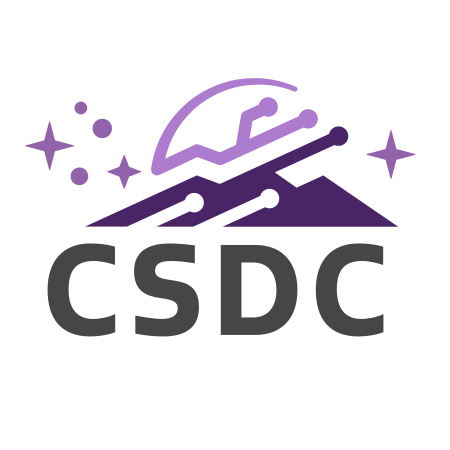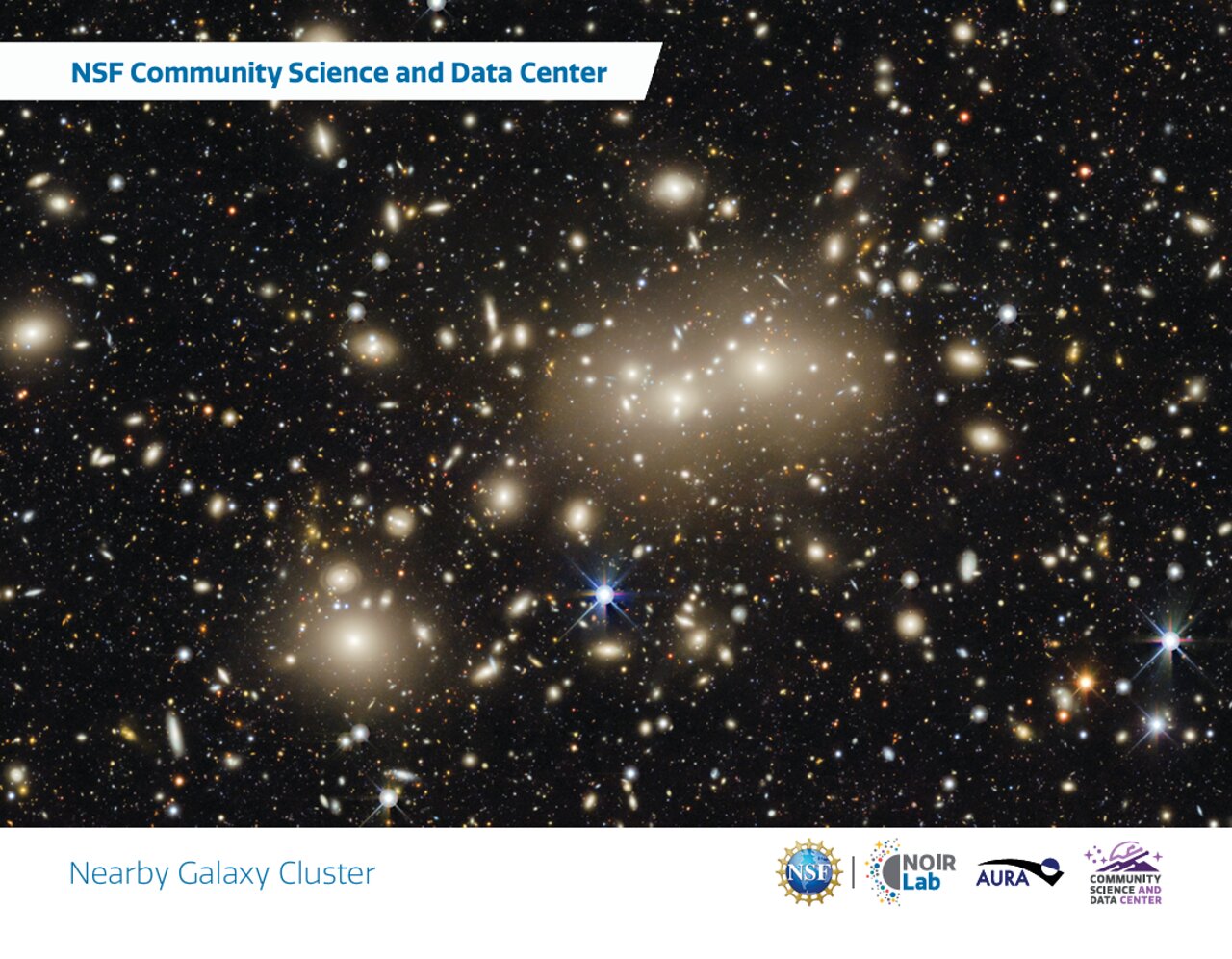Community Science and Data Center (CSDC)
Archive imaging data sky coverage as of 2019. Today, the Community Science and Data Center provides software systems, user services, and development initiatives to connect and support the scientific missions of the international Gemini Observatory, NSF Kitt Peak National Observatory, NSF–DOE Vera C. Rubin Observatory, and NSF Cerro Tololo Inter-American Observatory. Credit: CSDC/NOIRLab/NSF/AURA
The Community Science and Data Center (CSDC) is unique among the Programs of NSF NOIRLab. CSDC is the beating heart of the Lab’s data mission, hosting a variety of data products and software tools that act as a 'force multiplier' to maximize the inclusivity and impact of NOIRLab’s telescopes. CSDC enhances the researcher’s user experience through the integration of data sets and software systems from across NOIRLab and beyond. Extensive connections to the NOIRLab observatory programs and to community-based projects and surveys highlight the importance of this program and its focus on the broad use of data to support science discoveries.
Ensuring High-Quality Research
Facilitating the allocation of open-access observing time on U.S. ground-based optical and infrared telescopes through a process of peer review is a core function of CSDC. The Time Allocation Committee process ensures that any researcher with a good idea has access to observing facilities that will allow them to pursue their science goals, regardless of institutional affiliation.
Developing Tools for Discovery
NOIRLab’s Astro Data Lab is a sophisticated science platform that provides access to catalogs, spectra and imaging, as well as high-level software tools for discovering, exploring, and analyzing large public survey datasets. This includes the searchable spectral database, SPARCL, which supports both data discovery and efficient retrieval from the largest optical spectroscopic surveys. These powerful services allow for the democratization of data discovery by ensuring broad astronomy community access to a wide variety of data products for science research.
Supporting Time-Domain Astronomy
CSDC is at the forefront of innovation in supporting time-domain astronomy, i.e. deriving physical insights about astronomical objects through their brightness changes over both long and short timescales. CSDC has developed and maintains essential infrastructure, such as the ANTARES event broker, which allows users to search for, gain access to information about, and trigger follow-up observing of, dynamic phenomena in real-time.
Facilitating Data-Discovery
Allowing users to access archival data to make discoveries is another strength of CSDC. Through the Astro Data Archive, CSDC manages data operations, providing access to datasets collected with more than 40 telescope and instrument combinations.
The Gateway to the Gemini Observatory
The CSDC hosts and operates the U.S. National Gemini Office (US NGO), which serves as the U.S. astronomical community’s gateway to the International Gemini Observatory. The US NGO offers comprehensive support to U.S. Gemini users throughout their research cycle from their proposal preparation through data analysis and shares its products with the broader international partnership.
Leading Community Initiatives
On behalf of NOIRLab, CSDC provides institutional support for the US Extremely Large Telescope Program, the La Serena School of Data Science, and other capacity-building initiatives in optical and infrared astronomy. This commitment highlights CSDC’s dedication to advancing the field and supporting collaboration among the astronomy community.
CSDC is a Program of NSF NOIRLab, which is managed by the Association of Universities for Research in Astronomy (AURA) under a cooperative agreement with the National Science Foundation.


